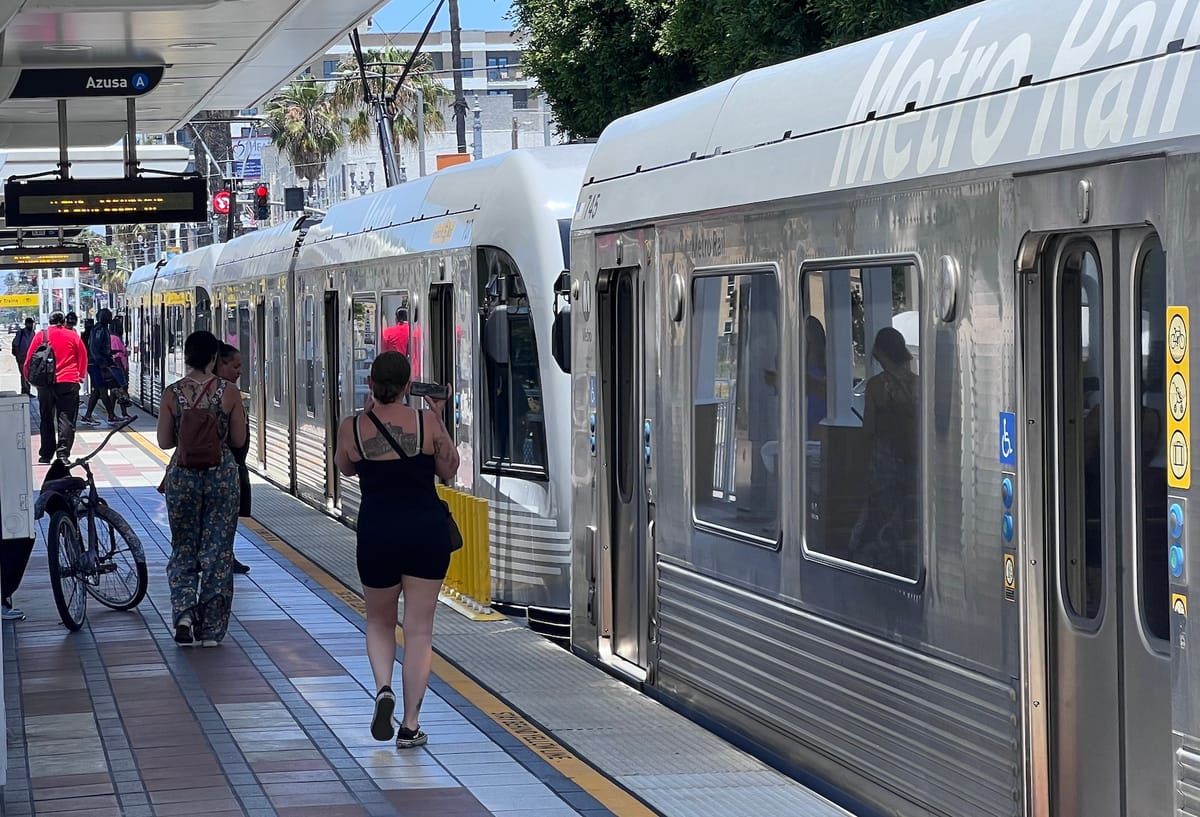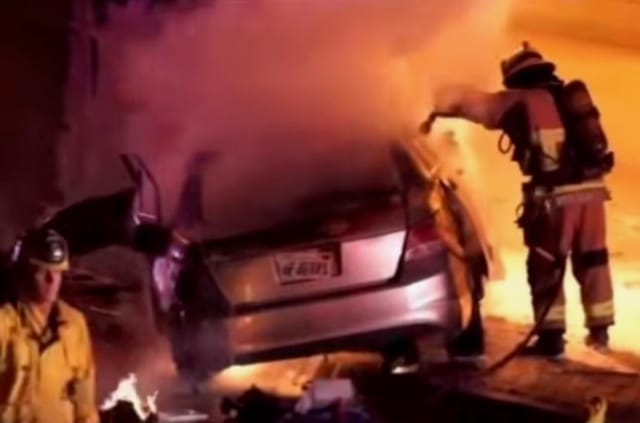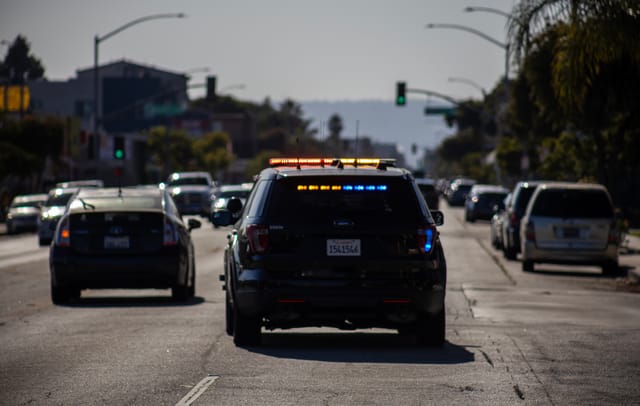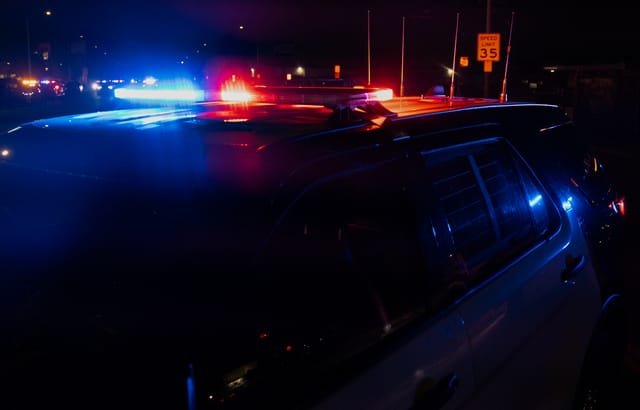LA Metro will create its own police force after vote Thursday
The vote will phase in the creation of Metro's own police force and end its agreement with three other law enforcement agencies, including Long Beach.

Los Angeles County Metro is moving forward with the creation of its in-house police agency after years of ongoing complaints about safety on its train and bus network and frustration with the law enforcement agencies it has paid since 2017 to keep the network safe.
Directors voted 10-0 Thursday to support the creation of the agency's own police force.
The board of directors asked last year for a comprehensive report on how the agency could move forward with creating its own department to better align with the agency’s values and to help ensure that officers are where they are needed.
An audit released in 2022 found that officers paid for by the agency were often not visible on its system and Metro had few means to track if they were actually doing the job Metro is paying for them to do.
The current Metro contract with the Los Angeles Sheriff’s Department, Los Angeles Police Department and Long Beach Police Department costs the agency about $194 million annually.
Metro staff recommended the agency move forward with an in-house police force that would maintain the same 386 average daily officers the contract currently provides with the addition of 227 more Metro ambassadors (141), homeless outreach staff (5) and crisis intervention workers (81).
The plan is expected to be phased in over five years.
“I know there are some cost savings associated with this but that’s not what’s important to me,” said Director Ara Najarian. ‘What’s important to me is keeping our riders safe.”
The vote comes as the agency has struggled with a string of violent incidents on its network with assaults of employees and riders in recent months, some of them ending in deaths on Metro trains or buses.
Metro has also struggled with unhoused people using its trains and stations as shelter as well as ongoing drug and weapons issues being reported on its systems.
Metro ordered a “surge” in security on its network after the murder of a 66-year-old woman in North Hollywood by an unhoused man in April. The man charged in the murder was once banned from Metro’s system for violence.
The leaders of all three departments spoke before the board Thursday and pushed back on the idea that their agencies are not fulfilling their contracts as well as the idea of Metro creating its own agency, which they said would cost more than the current agreement.
LASD Sheriff Robert Luna said in a letter to the board that it would cost the agency $227.3 million more annually and could compromise public safety.
This is not a time to experiment with new projects,” Luna said, noting the Olympics are coming to the city in 2028.
Director Karen Bass, who chairs the board, said the new Metro police agency likely won’t be stood up until after the Olympics, according to plans presented to the board Thursday.
“Clearly, there’s a lot to go through before we get there,” Bass said.
The years between then will be spent organizing the department and recruiting and training officers, something some board members expressed concern about.
“It’s going to take a hell of a long time to find that many people that we feel comfortable to carry firearms and interact with our riders,” said Director James Butts.
Butts acknowledged though that the current setup was not financially reasonable and couldn’t be supported with Metro’s current budget.
Members of the public were split on the idea of a larger police presence on Metro’s system with some saying they favored it to increase safety for riders while others said it could lead to more people of color being persecuted by law enforcement.
“I’m on these buses every day and I don’t feel protected,” one man told the board.
Brenda Jackson, an organizer with the East LA advocacy group, Community Power Collective, said Metro should be focusing more on the quality of life issues that exist in its system rather than dedicating more funding to police.
Jackson pointed to the Metro transit ambassador program that Metro officials have said helped save close to 200 lives, many of whom had overdosed and were given Narcan by ambassadors.
“These programs really are the solution, not the policing,” Jackson said.
Metro used to have its own police force that monitored its transit network but it merged its department with the Los Angeles Police Department in 1996. In 2017, Metro contracted with LAPD, LASD and the LBPD to patrol its train and bus network.
The current contract pays for about 30 LBPD officers who are supposed to ride the A-Line and patrol the train platforms in Long Beach.
Earlier in its meeting Thursday the board approved a motion to move forward with the potential implementation of using additional screening devices at its stations including facial recognition software and body scanners to help detect the presence of weapons.
The board is expected to receive an update on those options at its next regular meeting in July.
We need your support.
Subcribe to the Watchdog today.
The Long Beach Watchdog is owned by journalists, and paid for by readers like you. If independent, local reporting like the story you just read is important to you, support our work by becoming a subscriber.





